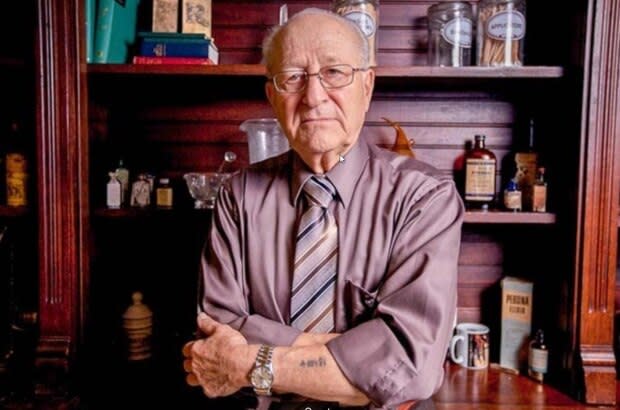'Absolute lies' and ignorance can lead descent into hatred, warns Holocaust survivor
Irving Roth was 15 years old, starved down to 75 pounds, and suddenly free.
The teenager, born in then-Czechoslovakia in 1929, had survived through the horrors of the Holocaust. His grandparents and 10-year-old cousin had been murdered. He was forced into a death march to a concentration camp and separated from his brother.
Finally, after all that, rescue was imminent.
"The American army marched in on April the 11th, and all the guards disappeared a few hours earlier," he said on CBC Saskatchewan's Morning Edition, recounting that historic day in 1945.
"[It was] almost like an out of body experience because there was no one who wanted to kill me. There was no one threatening me. On the contrary, all they want to do is feed me."

Now, as director of the Holocaust Resource Center Temple Judea of Manhasset, he dedicates time and efforts to educating others about the horrors of the Holocaust and the evils of racism.
Roth is sharing his story on Sept. 17 in Saskatoon and Sept. 18 in Regina with a speech titled Love, Betrayal & Redemption: Story of a Death Camp Survivor. He wants people to know how hatred and racism can insidiously creep into society, until normal people become unrecognizable.
He saw it himself, living in a free society where privileges were slowly stripped away.
"People who [were] God-fearing, churchgoing people became murderers, mass murderers and they did not think of it as a sin," he said.
"They sought out for this something glorious. They were doing for the greater glory of their country and their people."
Now, he says he sees a similar danger, of "ordinary people being convinced of absolute lies, historically the most convoluted bunch of nonsense, and people buy into it."
People need to relearn how dangerous hatred can be, and to do that, they must turn to the lessons of the past, he said.
"People who don't understand history, either deliberately or out of ignorance, need to go back into the books," he said. "Read it, listen to testimony, speak to people like myself, go to the places that were there to murder people en masse … then recognize what happened, how it happened and make sure they're not promoting the same ideas now."
